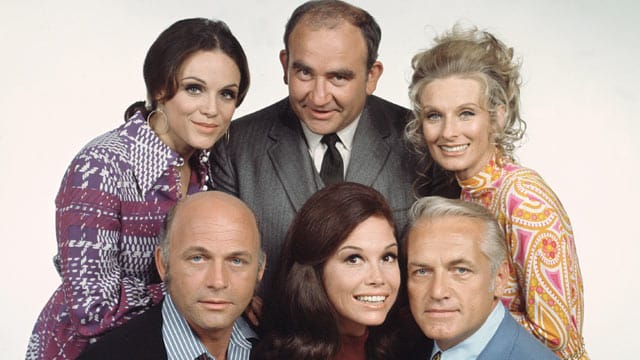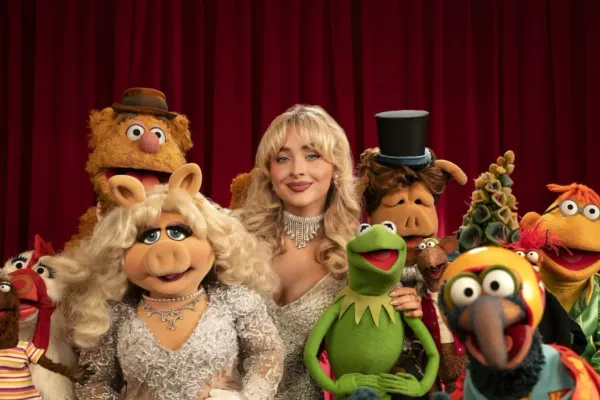Episodes: Whatever happened to Mary Richards?

When I was a kid, the de facto "best TV show of all time" was The Mary Tyler Moore Show. It didn't top every list, but it topped most of them, and if you either didn't rank it as highly as other series or outright didn't like it, the burden of proof was assumed to be on you. It was just the right mix of groundbreaking and timeless, a series that had legitimately changed television but not so much as to seem outdated (as All in the Family can at times). If I Love Lucy was Birth of a Nation, codifying how a new medium was going to work (or at least how comedy would within that medium), MTM was Citizen Kane, the show that brought a bunch of different ideas together, added some new ones, and created the path forward.
When the series hit Nick at Nite in the early 90s, I devoured it, primarily because of its general level of acclaim. I loved it, though I don't know if I loved it because it was good, or because I was told it was good. (There are a lot of opinions I have from this period that were formed more by awards shows and critics than anything else.) In either case, it lasted. I've continued to love it to this day and will sometimes pop on an episode on Hulu for comfort food.
But MTM hasn't really weathered the passage of time in the way that, say, Kane or even I Love Lucy have. I think people think of I Love Lucy as outdated, but they tend to at least nod in its general direction as an important trailblazer. Nowadays, people seem aware of MTM as an important show, and they might know a little bit about Mary and Rhoda. But I doubt they could tell you all about Ted Baxter, or name an episode other than "Chuckles Bites the Dust." And this goes for a lot of TV critics, people I hugely respect, as well.
This is, of course, the way things work. For a long time, it was generally assumed that David Copperfield was the best novel ever written, but now, it'd be lucky to get anywhere near a top 500, where many other Charles Dickens books might qualify. And there are countless films whose reputations have risen and fallen and changed with time. Things get sifted out. The truly great works of art rise to the top. Everything else collapses into the dust heap.
But TV strikes me as particularly ruthless in this regard. Because there's always so much of it, and staying on top of the current trends is so impossible, TV devours its history in a way that other art forms just don't. I mentioned I Love Lucy above, but when's the last time you actually sat down and watched a few episodes of that show? I haven't in years, and I get paid to do this.
If you were a film or literary critic who wasn't at least cognizant of the canon, you'd have trouble finding work. But TV criticism operates differently, because TV criticism doesn't really have a canon. In some ways, this is a good thing. Canons are inherently rigid, unnecessarily dogmatic things. But it's nice to have a baseline to start from, something to react to. And as TV history plows ever forward, that line in the dust keeps getting obliterated.
Maybe this is me being curmudgeonly about a show I loved that seems as if it's being forgotten. But this happens to recent shows, too. The Sopranos is righly beloved as a groundbreaking show, but I run into so few people younger than me who've actually watched it. Deadwood was considered part of an HBO holy trinity, until Mad Men and Breaking Bad came along, and everybody decided those two shows, The Wire, and The Sopranos made for a better Mt. Rushmore. (Deadwood "didn't have a finale" or whatever bullshit you want to believe.) When's the last time you thought about The Office?
Again, this is natural. TV is perhaps the only medium that exists in an eternal present. Shows go off the air, and you might have fond memories of them, but there's no reason necessarily to revisit them. There's always something more to catch up with, and history slips away from us. Plus, something like MTM had the misfortune to end up in a dead-end on the evolutionary ladder, as nobody really thinks critically about multi-camera sitcoms any more.
It's nice that TV doesn't have a canon, in some ways, but it's also disorienting. For the brief period when MTM was The Show, it was what you defined your opinion against. Now, there's just an endless onslaught of shows of the moment, taking up more and more of our attention. There are specialists who focus on classic TV, but they tend to work in an extremely niche field (and prefer it that way). Maybe MTM wasn't as great as I thought it was; maybe it's falling behind because of that. But I fear, deep down, that the real reason is that nobody's watched it, that the TV canon will always be whatever's on your DVR or streaming queue.
--
A call for reader requests: I'm going to spend next week talking about scary TV episodes, ideally ones I've never seen. Please email (by replying to this email) or Tweet me with your nominations! (To help you out, yes, I've seen every Twilight Zone, X-Files, and Buffy.)
--
Episodes is published daily, Monday through Friday, unless I don't feel like it. It is mostly about television, except when it's not. Suggest topics for future installments via email or on Twitter. Read more of my work at Vox Dot Com.




